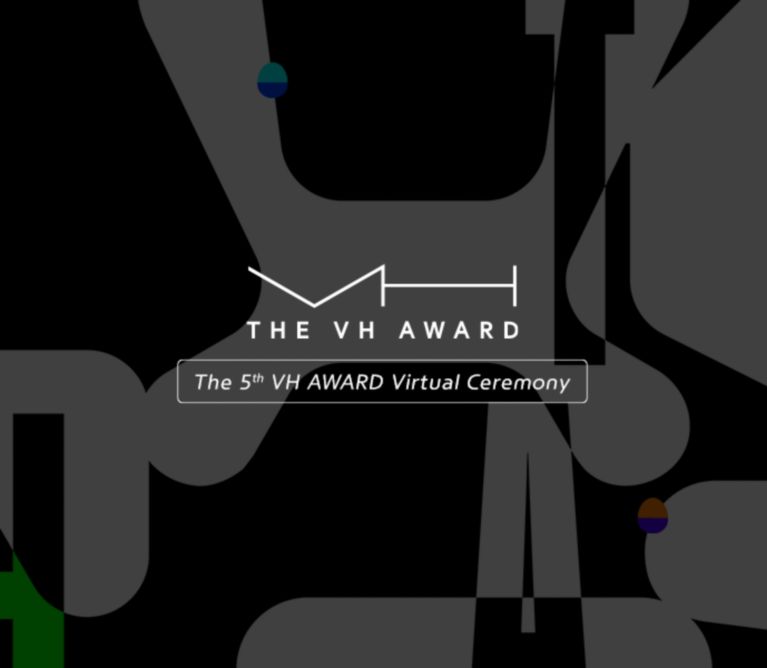- New artworks by Grand Prix recipient Subash Thebe Limbu and the finalists premiered during the 5th VH AWARD Virtual Ceremony
- Grand Prix artwork Ladhamba Tayem; Future Continuous explores idea of time as weavable possibilities by imagining the future where indigenous people exist in the space-time continuum
- Hyundai Motor Group to provide all participants with global exhibition programs at renowned art institutes, including Elektra, Ars Electronica and Museum MACAN, throughout the year
Press material
-
Download
-
Images
Hyundai Motor Group (the Group) today announced the Grand Prix recipient of the 5th VH AWARD, Asia’s leading award for new media artists. For the occasion, a virtual ceremony was held with the premiere screening of Ladhamba Tayem; Future Continuous by Grand Prix recipient Subash Thebe Limbu, along with the artworks of the finalists: Zike He, Riar Rizaldi, Su Hui-Yu and zzyw.
Established in 2016, VH AWARD discovers and supports emerging and new media artists by sharing their artistic experiments and showcasing their artworks across global platforms. This year’s virtual ceremony was held at Common Garden, an online platform created by the artist Constant Dullart, attended by global art scene opinion leaders, media, and winners from previous years.
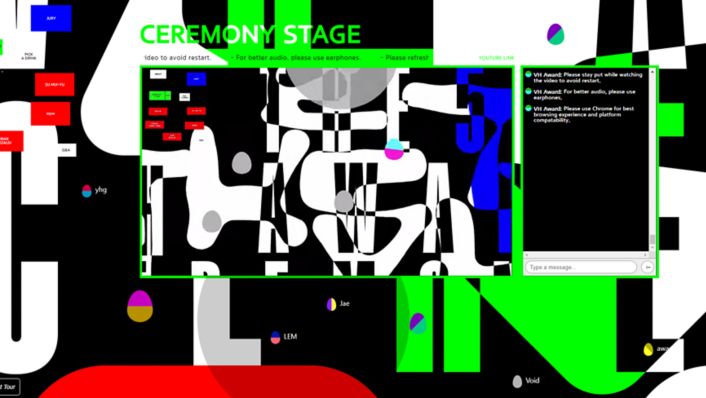
The 5th VH AWARD Virtual Ceremony. Provided by Hyundai Motor Group VH AWARD.
The ceremony featured full-length versions of the five finalists’ new artworks for public viewing, as well as interviews and behind-the-scenes videos from the making process. The event also featured five virtual cocktails crafted by Doreen Chan, one of the finalists from last year’s 4th VH AWARD, as part of her winning work HalfDream with newly created recipes to represent the works and dreams of this year’s five finalists.
This year’s Grand Prix recipient Subash Thebe Limbu won the award with his work titled Ladhamba Tayem; Future Continuous. In his work, Limbu imagines futures where Indigenous people’s actions and existence is in the space-time continuum. Through the conversation between two indigenous people from very different timelines, the Yakthung-based artist asks the viewers to investigate their own potential role in searching for the possible futures to strive for, while reflecting the struggle against colonialism and overcoming obstacles.
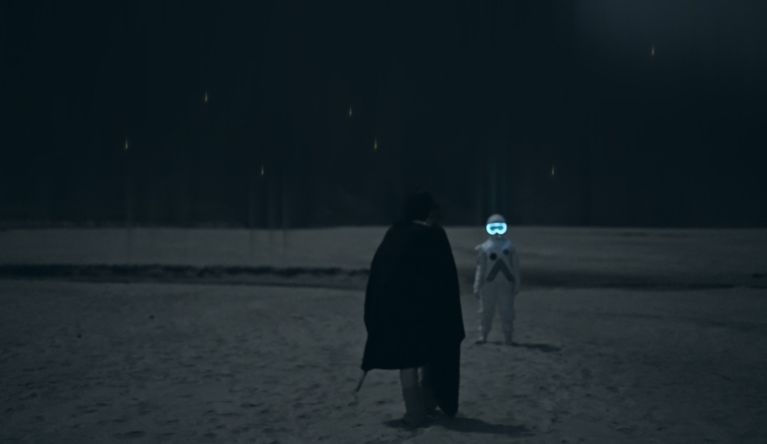
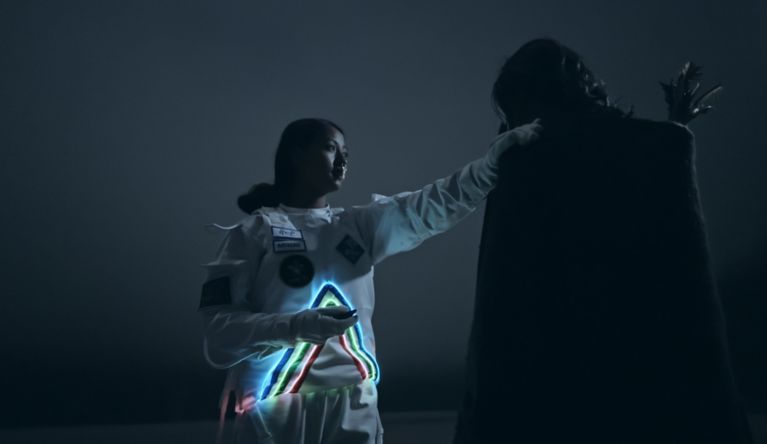
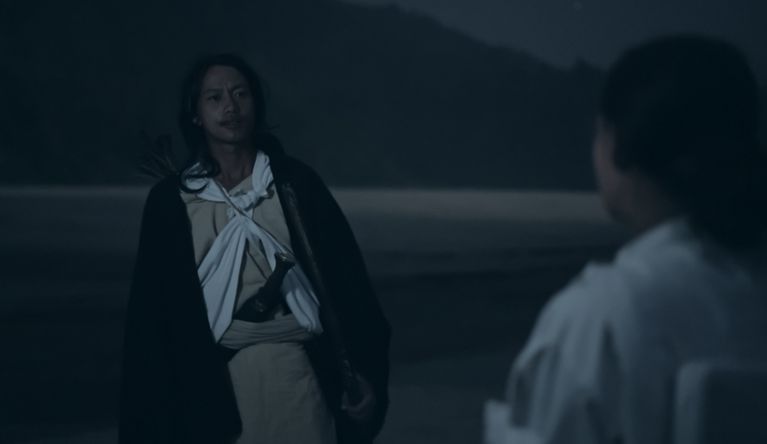
This work plays with the idea of time as not something rigid but ductile or weavable, which in turn paves the way for questions like how we might want to weave the future.
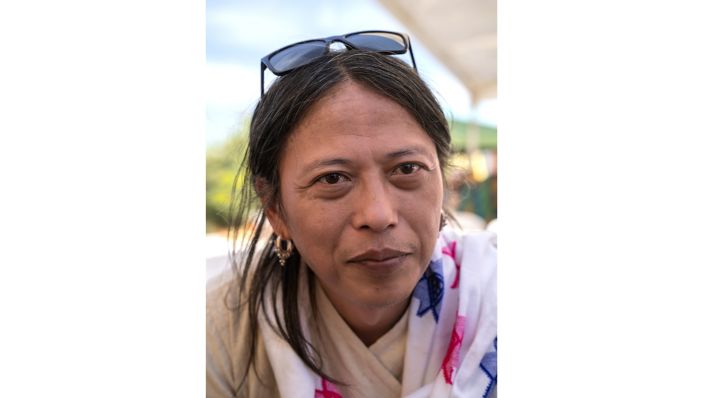
Subash Thebe Limbu, Grand Prix recipient of the 5th VH AWARD, Image courtesy of the artist.
In September 2022, VH AWARD announced the five shortlisted artists of the 5th edition and awarded grants for the production of new artworks. The finalists also received the opportunity to participate in an online residency program hosted by Eyebeam, the preeminent New York City-based art and technology center. The artists participated in professional development sessions and regular mentorship meetings with globally renowned art experts such as Barbara London and Magdalena Magiera, as well as artists Jon Ippolito, Clarinda Mac Low, Kamau Amu Patton, Taeyoon Choi and Marton Robinson. As the Grand Prix recipient, Subash Thebe Limbu will receive an additional grant.
The artworks of the five finalists from the 5th VH AWARD are now being screened at HMG Vision Hall (Yongin) and Elektra Virtual Museum (Montreal), and will also be presented at various art institutes and platforms around the globe, including Ars Electronica (Linz) and Museum MACAN (Jakarta). The upcoming global exhibition program is part of the Group’s commitment to provide all recipients with opportunities to present their works at renowned art institutes and virtual events and share the diversity and creativity of Asian new media artists with global audiences.
With the 5th VH AWARD, Hyundai Motor Group celebrates the diversity and creativity of media artists around the world who engage with the context of Asia and share the Group’s vision of coming ‘Together for a Better Future’. These emerging artists have broadened our perspectives on the future of humanity and enabled us to blur any boundaries through their distinctive cross-cultural practices.
About the 5th VH AWARD finalists
Grand Prix Recipient – Subash Thebe Limbu (b. 1981, Dhara) is a Yakthung (Limbu) artist from eastern Nepal. He works with sound, film, music, performance, painting and podcasts. His 14:51-long, award-winning work Ladhamba Tayem; Future Continuous (2023) borrows its name from a verbal inflection that specifies time of action or state where ‘Tayem’ is future and ‘Ladhamba’ is continuous in the artist’s indigenous Yakthung (Limbu) language. It imagines a future where indigenous people’s actions and existence will still be in the space-time continuum. This work imagines a conversation between two indigenous people from very different timelines, one being a historical figure, a 16th century Yakthung warrior called Kangsore fighting the colonial army, and the
other being an indigenous astronaut or time traveler from the distant future. They talk about time and space from their perspective timelines, and in doing so it asks the viewer – people in between their timelines – to investigate their own role or potential role in the space-time continuum. The time traveler indicates what the future might look like for us or possibilities we want to strive for, while the warrior reminds us of the fight against colonialism and struggles that we shall overcome.
Zike He (b. 1990, Guiyang) is a media artist whose recent projects are developed with research ranging from digital space and machine learning to infrastructure and deep time, and with the exploration of their shapes in daily life. Her artwork Random Access (2023) is one of the modes to read and write datum (as in random access memory, RAM), by which any arbitrary address can be visited in equal time no matter where it is located. It also refers to how we process memory, especially in the time interwoven deeply with digital technology.
Riar Rizaldi (b. 1990, Bandung) works as an artist and filmmaker whose Fossilis (2023) tells a tale of the verdant inferno of technological legacy, resonating the complexity of electronic waste in the 21st century of Asia where most of the discarded electronics are dumped and buried. With sets built from waste materials, cannibalized parts, 3D assets, environments from abandoned projects and artificial intelligence (AI) images generated from a personal dataset, “Fossilis” offers more than just concepts, narratives and representation of e-waste as an issue. It also engages in the process, development and modes of film production that involves actual – both digital and physical – waste and e-waste objects as means of artistic practice.
Su Hui-Yu (b. 1976, Taipei) explores the connection between mass media, pop culture, memories of martial law and the post-colonial history of Taiwan and East Asia. His work The Space Warriors and the Digigrave (2023) combines fantasies and folk tales that hint at nationalism, Confucianism and chauvinistic values, based on a unique experience of the collective memory of the island nation during the martial law era. Using nowadays open-source AI tools combining with traditional film skills, Su wants either metaphysically or technically providing a solution of reconciliation for those who’s still struggling with the nations, identities, genders, morals, and ideologies.
zzyw (founded in 2017, based in New York) is an art and research collective formed by Yang Wang and Zhenzhen Qi in New York in 2017. It produces software applications, simulations and text as instruments to examine the cultural, political and educational imprints of computation. Its work Other Spring (2023) is a multifaceted project that critically investigates the societal implications of computational mediation, automation and AI. Inspired by the ancient Chinese fable Peach Blossom Spring and drawing from zzyw’s research paper “Computational Haze,” the project comprises a virtual world and a short film exploring the potential of ‘heretical computing’ (based on a lecture by Alexander R. Galloway, 2020) to challenge the monolithic idea of efficiency and precision that characterizes our contemporary information society.

